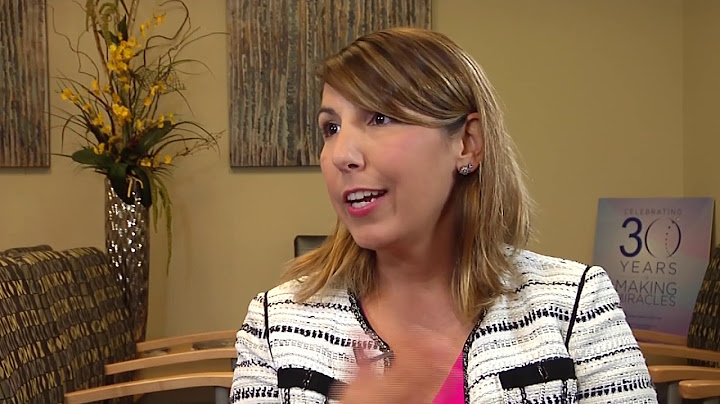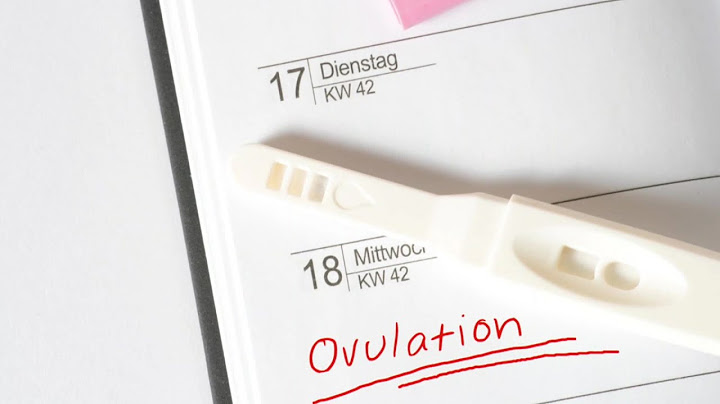Breastfeeding can have an effect on your fertility, particularly in the early months. While for some mothers this is a benefit, it can also be a source of frustration for those hoping to grow their families. Show
The simple answer is that you can get pregnant while nursing. However, many moms experience a time of delayed fertility during breastfeeding. This is very common and is referred to in many places as the Lactation Amenorrhea Method (LAM) of contraception. As described in The Womanly Art of Breastfeeding, the Lactation Amenorrhea Method of using breastfeeding to delay fertility needs all the following to be true:
For some mothers, the contraceptive effect of breastfeeding is a very welcome side effect, but it can be worrying and upsetting if over a year has passed since your baby was born and you still have not noticed any signs that your body is returning to being fertile. You can read more about breastfeeding and menstruation here. The Womanly Art of Breastfeeding states that most breastfeeding mothers will resume their periods between 9 and 18 months after their baby’s birth. Some mothers find that once their baby starts sleeping for longer spells at night, or if they are separated in the day time (for instance through return to work outside the home) this is enough to reduce the effect that breastfeeding has on reducing estrogen levels, so that their bodies can start to menstruate again. Others find that while their baby is still nursing at all, this seems to be enough to suppress menstruation completely. It can be very hard emotionally if you feel that you are needing to choose between your future hoped for child and meeting the needs of the child currently in your arms. Some mothers like to think of this as an experience of their bodies being in tune with their babies’ needs: when our babies are feeding from us often enough to suppress our fertility, this might be because they are not yet ready to share us with a sibling. Will breastfeeding affect my use of fertility treatments?If you need fertility treatment such as IVF to grow your family, you may find yourself faced with some difficult choices. This is a complicated and under-researched area. Some drugs used in fertility treatment are safe to use while breastfeeding; others are not harmful to your baby but can affect your milk supply; and still others could be dangerous.1 You will need to talk carefully to your healthcare provider about the proposed plan, and weigh up the length of time you would like to continue nursing your first child for, with the timing of when you would like to begin treatment. 1https://www.breastfeedingnetwork.org.uk/ivf/ LLL Greece Article This article is also available in Spanish. How soon can you get pregnant after giving birth while breastfeeding?If you’re not breastfeeding, you can get pregnant again as soon as three weeks after giving birth. However, a review of studies in 2011 found that most women did not ovulate until six weeks after giving birth, this is different if you choose to breastfeed. If you are exclusively breastfeeding (i.e. feeding your baby only breast milk) this can work as a method of birth control for up to six months after giving birth. Unfortunately, it’s difficult to know when that first ovulation is going to arrive - you might not know it’s happened until you get your first period after pregnancy, by which point you’ve already been fertile. There are a couple of options available to help you detect ovulation. LH tests can detect a surge in hormones before ovulation, while taking your basal body temperature can confirm ovulation has happened. Do I ovulate while breastfeeding?You’re extremely unlikely to ovulate in the first weeks after giving birth, and if you are only feeding your baby breast milk then ovulation is likely to be delayed further. Of course, if you’re not ovulating, then you can’t get pregnant. However, since the signs of ovulation are extremely subtle, you likely won’t be able to tell when it’s coming and prepare for it. You should get the opportunity to get contraceptive counseling with your doctor both before and after the birth of your baby. This is a good time to consider your birth control options and ask questions as you might want to try a different method of birth control than what you’ve used previously. Chances of getting pregnant while breastfeedingIf used perfectly, breastfeeding as a birth control can be as much as 98% effective. This means you are only giving your baby breast milk, and only for the first six months. After this time the chances of becoming pregnant will increase. Of course, this varies from woman to woman, and while for some it might take a longer time for ovulation to resume, once it does there is a risk you might get pregnant. If we look at birth control effectiveness, and take couples who have regular sex without using any protection there is an 85% chance they will fall pregnant within a year. Again, if you are breastfeeding exclusively, then ovulation is likely to be halted for the first months after giving birth and you can rely on breastfeeding as contraception during this time. Pregnant while breastfeeding symptomsThe symptoms of early pregnancy can be hard to detect at the best of times, but if you’re looking after a little one and you’re having irregular cycles, it might be extra hard to detect a pregnancy. However, some symptoms of becoming pregnant while breastfeeding include:
The symptoms of early pregnancy are also very similar to those of PMS, so it can be a little confusing - especially if you have been experiencing irregular cycles after giving birth. If you’re in doubt, take a pregnancy test and consult with your doctor if you still have concerns. Birth control and breastfeedingYou can use both hormonal and non-hormonal birth control while breastfeeding. However, for the first three weeks after giving birth you should avoid birth control containing the hormone estrogen. You might want to try a non-hormonal birth control method post-pregnancy - or if the pill has always worked for you, you might reach for the packet again. Either way, it’s a good time to have a discussion about the available methods with a healthcare professional. Using Natural Cycles while breastfeedingNatural Cycles is an FDA Cleared app and thermometer that helps you understand your own personal fertile window. Natural Cycles has three modes that adapt to your unique fertility journey: NC° Birth Control, NC° Plan Pregnancy and NC° Follow Pregnancy. Regardless of whether or not you choose to breastfeed, we recommend you start using Natural Cycles once you get your first period after giving birth. You can use Natural Cycles earlier, but keep in mind that until your first ovulation has been detected, NC° Birth Control will give you only red days. We hope you’ve learned lots about breastfeeding, preventing pregnancy, and when you’re likely to ovulate again after giving birth. There’s lots more to learn about your body and whether you’re looking to plan or prevent pregnancy, Natural Cycles is a great tool that gives you personal insights into your own cycle. Are you ready to take control of your fertility? Can a breastfeeding mother get pregnant without seeing her period?The simple answer is yes. Although breastfeeding offers some protection from ovulation, the monthly occurrence where you release a mature egg from one of your ovaries, it is possible to ovulate and become pregnant prior to getting your first period.
How easy is it to get pregnant while breastfeeding?Can I get pregnant while I'm nursing? The simple answer is that you can get pregnant while nursing. However, many moms experience a time of delayed fertility during breastfeeding. This is very common and is referred to in many places as the Lactation Amenorrhea Method (LAM) of contraception.
What are the symptoms of pregnancy when breastfeeding?Breastfeeding while pregnant can make your breasts sore and your nipples tender. You might find you are even more tired or experience worse morning sickness than you normally would during pregnancy. These side effects are due to your pregnancy hormones.
How do I know when I am ovulating while breastfeeding?6 Signs of Ovulation While Breastfeeding. You Got Your Period. Getting your period is a clear sign of returning fertility while breastfeeding. ... . Cervical Mucus Gets Lighter. Pay attention to your discharge. ... . Slight Temperature Rise. ... . Cramping. ... . A Libido Boost. ... . Tender Breasts.. |

Related Posts
Advertising
LATEST NEWS
Advertising
Populer
Advertising
About

Copyright © 2024 muatrau Inc.


















